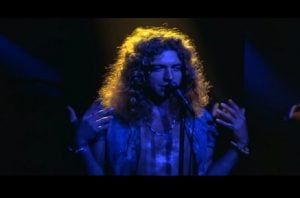We Celebrate The Rolling Stones Debut Album Going On 60 years with These Facts

via The Rolling Stones / Youtube
The year is 1964. Beatlemania is sweeping the globe, and a new band with a rougher, bluesier edge is about to emerge from the London scene. On April 16th, The Rolling Stones unleashed their self-titled debut album, igniting a musical firestorm that continues to burn brightly even today.
Six decades later, this record isn’t just a relic of a bygone era – it’s a timeless testament to the power of rock and roll. But the story of The Rolling Stones’ debut goes deeper than the electrifying tracks that fill its grooves.
Beyond the iconic riffs and Mick Jagger’s swaggering vocals lie surprising facts and a fascinating collaboration that helped shape this legendary album. Let’s dig into this legendary debut and uncover the secrets that made it a rock and roll landmark.
More Than Just Covers
Contrary to what some might believe, The Rolling Stones’ debut record isn’t solely composed of their own songs. In fact, only one track, “Tell Me (You’re Coming Back)”, boasts a songwriting credit for the iconic duo of Mick Jagger and Keith Richards.
The rest of the album features a collection of covers, paying homage to rock and roll legends like Bo Diddley, Buddy Holly, and Chuck Berry. Interestingly, two tracks are credited to “Nanker Phelge”, a playful pseudonym used by the band on occasion.
Despite the lack of Jagger-Richards originals, the album isn’t a mere collection of borrowed tunes. “Tell Me (You’re Coming Back)” shines as a testament to the band’s versatility. This impressive ballad showcases a side of The Rolling Stones rarely explored – a foray into the realm of doo-wop.
“Tell Me” proves that while raw energy and rebellious spirit were their trademarks, The Stones were capable of crafting beautiful songs as well.
An Unexpected Collaboration
The Rolling Stones also boasts a surprising collaboration – the legendary record producer Phil Spector. Known for his “Wall of Sound” production style that dominated the 1960s, Spector had worked with a who’s who of artists, including The Beatles and The Ronettes.
His influence extended to The Rolling Stones’ debut as well, with a co-writing credit on the track “Little by Little”.
However, this track is a unique entry in Spector’s discography. Steering away from his signature polished sound, the song leans heavily on bluesy elements. This stripped-down approach foreshadows Spector’s work on George Harrison’s “Wah-Wah” from the acclaimed All Things Must Pass album.
Notably, the track showcases The Rolling Stones’ versatility. The harmonica work on “Little by Little” proves they weren’t confined to a rock and roll sound, but could effortlessly embrace Americana influences.
A Californian Crowd-Pleaser
The Stones debut also featured a cover of the iconic American road trip anthem, “Route 66” by Bobby Troup. This choice proved particularly fruitful during their first-ever US concert in San Bernardino, California, as documented in the 2013 book 50 Licks: Myths and Stories from Half a Century of The Rolling Stones.
Richards himself described the electrifying effect the song had on the Californian audience. “[It] was a straight gas, man,” Richards recalled. The shared familiarity with the song created a sense of connection.
“They all knew the songs, and they were all bopping,” the guitarist said. Hearing a familiar tune with a local reference – “Route 66” mentions San Bernardino – turned the performance into a homecoming of sorts for both the band and the crowd.
A Pop Gem From an Iconic Rock Record
In a 1995 interview with Rolling Stone magazine, Jagger discussed the unique sound of “Tell Me (You’re Coming Back)”, the sole Jagger-Richards composition on their debut album.
“We recorded it in this tiny studio in the West End of London called Regent Sound, which was a demo studio,” Jagger recalled, highlighting the humble beginnings of the track. “I think the whole of that album was recorded in there.”
Jagger went on to explain how the song stood out from the rest of the album. “It’s very different from doing those R&B covers or Marvin Gaye covers,” he said. He emphasized the distinct character of the song, differentiating it from the blues and Motown influences prevalent on the rest of the record.
Jagger then revealed a surprising detail about “Tell Me (You’re Coming Back)”: “It’s a very pop song, as opposed to all the blues songs and the Motown covers, which everyone did at the time.”
A Difference in Opinions
The music magazine Rolling Stone wasn’t initially a huge fan of The Rolling Stones. Jann S. Wenner, the magazine’s founder, expressed his opinion in an interview with Mick Jagger.
Wenner stated that, in his view, the band wouldn’t produce truly memorable albums until their release of Out of Our Heads, released in 1965. This implied that Wenner found The Rolling Stones debut to be lacking.
Interestingly, during the same interview, Jagger himself couldn’t recall the songs on Out of Our Heads, the album featuring their megahit “(I Can’t Get No) Satisfaction”.
Even when reminded of the iconic track, Jagger still viewed the album primarily as a collection of covers, suggesting he didn’t share Wenner’s opinion on its memorability. This back-and-forth highlights a fascinating difference in perspective between a burgeoning magazine and a rising rock band.
















